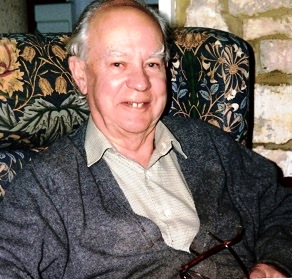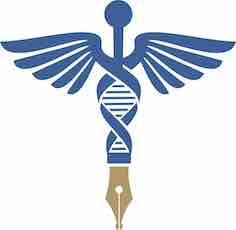Nick Timmins, formerly of the Financial Times, offers this tribute:
John Roper, a founder member of the MJA and medical reporter on The Times who became that paper’s and Fleet Street’s first health services correspondent has died at the ripe old age of 95.
The man who – in retirement – refused to pay the poll tax, organised a demonstration in Downing Street to protect rural pharmacies, started riding lessons at the age of 80, and who was still shaking a collecting tin for the Royal British Legion at the age of 92, was a model for medical journalists, even today.
He had perfect shorthand – no quote ever escaped him, long before the days of tapes and digital recorders. He was a stickler for accuracy and balance. But he had no fear about whom he upset in achieving that. And he had a wicked sense of humour.
Born in 1916 in Chelmsford, educated at the local King Edward VI grammar school, he joined the Cambridge Evening News as an office junior before becoming a district reporter on the Herts Advertiser. Aged 23, he volunteered as a driver in the Army Service Corps at the outbreak of the Second World War. He saw action at El Alamein, in Egypt – the turning point which was, Churchill’ famously said ‘if not the beginning of the end, perhaps the end of the beginning’ – and in Italy, before taking part in the Normandy landings.
Like so many of his generation, the war shaped him. He didn’t easily talk about it. But when you have known real fear, the odd grand, angry doctor – and doctors back then, particularly from the royal colleges, could be grand indeed – was not so frightening.
After being demobbed, he joined the Press Association and in 1948 he married Marjorie, a former medical secretary. He moved to The Times in 1965 when it still had classified ads and no news on the front page. The paper then was still the embodiment of the establishment, and sufficiently grand not to allow a lay person to be medical correspondent (a role that was fulfilled with distinction for many years, even beyond John’s tenure, by Tony Smith of the BMJ), so John was entitled medical reporter.
However, his appreciation that health care was more than just doctors, and the nature of his reporting – combined with the repeated reorganisations that the NHS started to undergo — saw his title elevated to health services correspondent. His coverage of mental health care prompted a debate in parliament, and he was one of the first British journalists to report on medicine in China as that country started tentatively to open up to the west.
John and Tony Thistlethwaite, BMA press secretary at the time, were two of the founder members of the MJA in 1967. This is covered colourfully – though not entirely accurately according to John – in Tony’s history of the MJA: Independent and Bloody Minded, published to mark the MJA’s thirtieth birthday. (Copies available. Ed.) Tony used to say that in those days Fleet Street ran on ‘booze and cigarettes’, or, in John’s case, a pipe and a fine whisky. Dr Derek Stevenson, then BMA secretary, would work his way through a pack of untipped Senior Service at press conferences – while back in the ‘Street you could get fired in the morning, go to the right pub at lunch and have another job by opening time that evening.
John though never needed to. Other medical correspondents who had been on holiday would come back to read the cuttings of their ‘splashier’ colleagues, but would then be sure to read John’s to find out what had actually happened.
His trademark (self-tied) bow ties, and a gurgling laugh, were allied to a wonderfully self-deprecating sense of humour. One of his best lines at pretentious, or obfuscating, press conferences was to raise a hand, scratch his head and say: ‘I may be a bear of very little brain, but …’ The question that followed was often the one that others had not quite had the nerve to ask. It regularly exposed the shallowness of an argument, or the hollowness of a minister’s or medic’s position.
John retired in 1981 moving first to the Cotswolds and later, following Marjorie’s death from cancer in 1992, to Devon to be closer to family. A generous, compassionate man who remained fiercely independent almost to the end, he always encouraged younger colleagues, and combined a strong religious faith with a powerful sense of social justice. He is survived by his three sons, Timothy, Jonathan and Simon, and eight grandchildren.
(copyright MJA, 2012)




Recent Comments